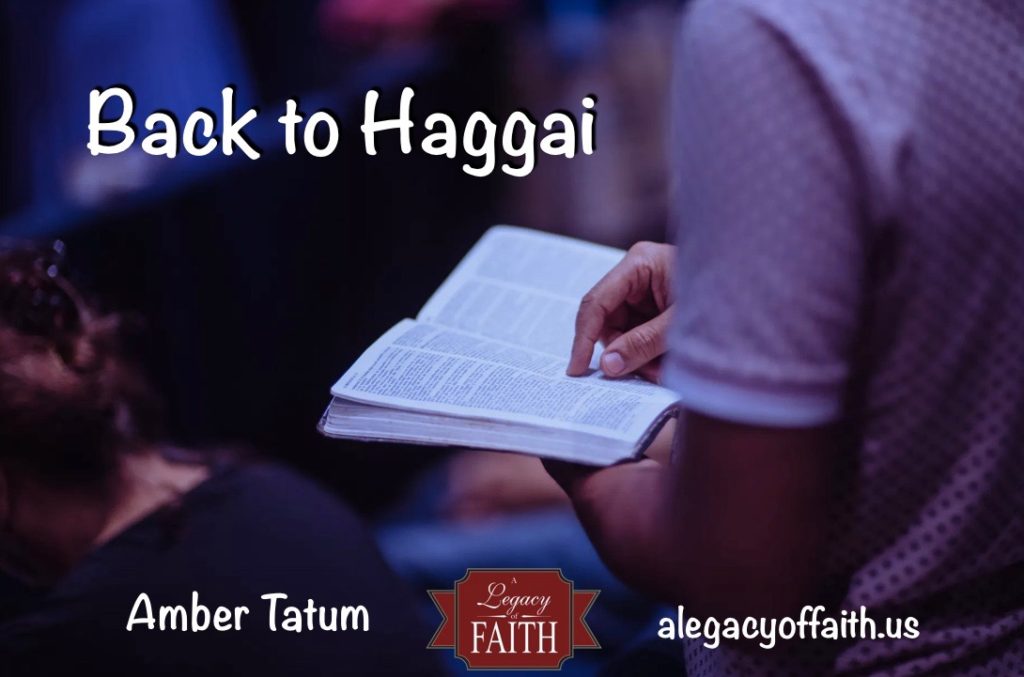Back to Haggai

A few weeks ago, I wrote an article that came from the first chapter of Haggai. The idea of that article was that God has supplied all we need, yet we fail to prioritize Him in our lives. I hope those thoughts have helped you (and me) keep Him first these past few weeks.
We often overlook the wisdom contained in these shorter books of the minor prophets. If you are like me, you often feel as though you don’t fully understand “the who” or “the what” is being discussed and so feel lost. Or perhaps, the subject matter makes you uncomfortable (think Hosea) and so we avoid the lessons therein. I think part of why Jonah is often people’s favorite minor prophet (besides the catchy tune) is the easily understood and relatable plot line: God asks me to do something, I resist so God disciplines me and I repent to do as He asks. But if my “enemy” is shown grace, I forget how much I need grace myself and pout until I am reminded of God’s great love. That, I understand, and while it steps on my toes some, it doesn’t make me too uncomfortable!
With all of that said, I would like to take you back with me to Haggai for another lesson this week, this time in chapter 2. At the end of chapter 1, we read that the people got their priorities in order and started working on the temple in the sixth month of the year. About 3 months later, God has Haggai ask the priests some questions. He asks if they are carrying holy food in their cloak and it touches some other item of food, does that item become holy. The answer is no. But then they are asked if someone unclean touches that same holy food does it become unclean, and the answer is yes!
Here is one of those situations I mentioned earlier where I feel a little lost in the language of the prophecies. I don’t completely understand the analogy God is using with the people of that time. I know it has to do with His holiness and His provision being what keeps them, but then the topic changes again.
Does this mean this passage isn’t useful to me? No! ( cf. 2 Timothy 3:16) For one thing, it gives me an opportunity for further study and growth. But even with my limited understanding in its context, it makes sense to me as an example we often try to teach young people.
1 Corinthians 15:33 is a verse we often use to warn young people about their friends. Why? The same reason holy food cannot transfer its holiness but can be defiled. The same reason we use Psalm 1 to caution against even slowing down in the presence of evil lest we find ourselves sitting in its midst. The same reason why someone on the floor can pull a person off a chair but the person on a chair can’t pick them up with the same ease.
God tells the people of Haggai’s time that they have had no success until they got themselves in line with His plan, but once there, “ … from this day on I will bless you” (Haggai 2:19). May we remember that lesson today, even if it is shared by a minor prophet in a – somewhat – obscure way.
And may we scour the Scriptures for more!
“Now these Jews were more noble than those in Thessalonica; they received the word with all eagerness, examining the Scriptures daily to see if these things were so.” Acts 17:11
To Receive Every Article from A Legacy of Faith through Email for Free, Click Here
AUTHOR: Amber Tatum


